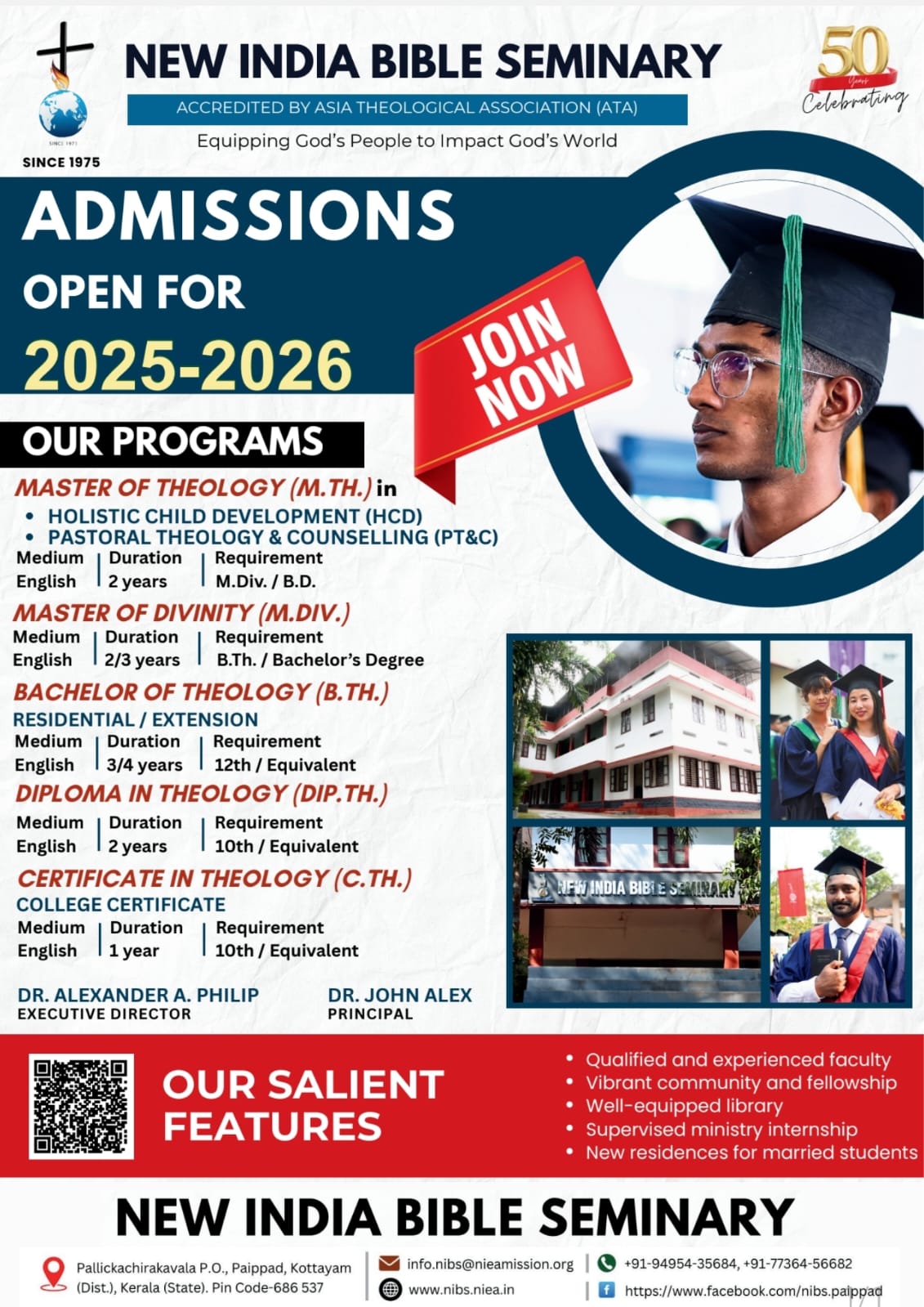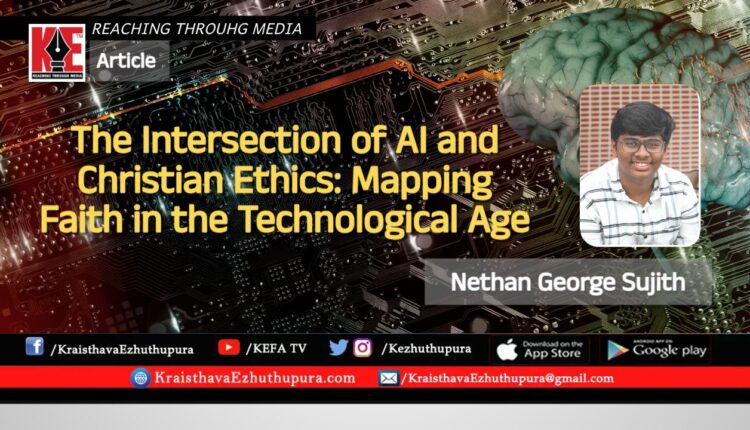Article: The Intersection of AI and Christian Ethics: Mapping Faith in the Technological Age | Nethan George Sujith
In a world where artificial intelligence (AI) can compose sermons, predict human behavior, and even mimic prayer, how does a Christian determine its place in a life of faith? As AI technology becomes increasingly integrated into daily life—revolutionizing healthcare, communication, and even spirituality—it raises both opportunities and challenges for believers. Christians are called to engage with the world while holding fast to biblical principles. The question is not whether AI has a place in Christian life, but how it should be understood, embraced, and navigated with wisdom.
This article explores the intersection of AI and Christian ethics, considering how faith can guide our response to innovation and how, in turn, technology can be a tool for glorifying God.
—
AI as a Tool for Christian Mission
AI presents unique possibilities for Christian outreach and stewardship. Technological advances have allowed the Gospel to reach corners of the earth previously inaccessible. AI-based Bible translation projects, such as those supported by Wycliffe Bible Translators, make Scripture available in hundreds of minority languages. Meanwhile, social media algorithms powered by AI connect believers across continents, creating global communities of prayer, worship, and discipleship.
These developments align with Christ’s commission: “Go and make disciples of all nations” (Matthew 28:19). AI, when used intentionally and ethically, becomes a vessel for fulfilling this Great Commission by removing language and distance barriers.
This ability to harness AI for redemptive purposes reflects humanity’s God-given creativity and dominion over creation (Genesis 1:28). Like any tool, it is morally neutral until used—its value is determined by the intentions and outcomes it produces. When it serves love and truth, AI is not only permissible but a reflection of God’s grace at work through human ingenuity.
—
Ethical Challenges of AI in a Christian Context
Despite its benefits, AI also introduces significant ethical concerns that can challenge Christian values.
Privacy is one of the first casualties in AI-driven societies. Facial recognition, predictive behavior systems, and mass data collection can strip individuals of their dignity and autonomy. This is not in line with the biblical truth that every person is made in the image of God (Genesis 1:27), and thus possesses inherent worth.
Bias in algorithms is another issue. AI systems, often trained on biased data, can reinforce discrimination and inequality. Scripture instructs believers to “act justly and love mercy” (Micah 6:8), which stands in contrast to the injustice sometimes embedded within AI frameworks.
Dependency on AI for spiritual guidance also poses a theological challenge. AI-generated devotionals or sermons may offer useful insights, but they can never replace personal communion with God. Faith grows through the Holy Spirit’s presence, Scripture, prayer, and Christian fellowship—not digital approximations of them.
Unchecked, AI can subtly become an idol—something we trust more than God or rely on to solve problems meant for spiritual discernment. As Jesus warned, “You cannot serve both God and mammon” (Matthew 6:24)—and this warning applies to modern tools as much as ancient wealth.
—
Embracing AI with Wisdom and Faith
The Christian response to AI need not be rejection or blind acceptance. Instead, believers are called to embrace it with wisdom and discernment.
Here are a few practical principles to guide Christian engagement with AI:
Use AI to serve others. Whether it’s analyzing the most effective use of charitable donations or creating accessible content for people with disabilities, AI should serve the mission of love and justice.
Prioritize human connection. Efficiency is not the highest value in the Kingdom of God—relationships are. Jesus said, “Love one another as I have loved you” (John 13:34), reminding us that empathy and presence must take precedence over productivity.
Seek wisdom in prayer. As James 1:5 encourages, “If any of you lacks wisdom, let him ask of God.” Christians must continually pray and reflect on how technology impacts their hearts, their communities, and their spiritual lives.
AI is a tool, not a master. The Holy Spirit empowers believers to navigate this world with clarity and confidence. With God’s guidance, we can approach AI not with fear, but with purpose.
—
A Hopeful Vision
AI offers a chance to reimagine Christian witness for a new age. Churches are beginning to use AI to assist with administrative tasks, freeing up pastors and leaders to focus on ministry. AI tools can help individuals stay organized in their faith journeys—reminders to pray, track spiritual goals, or curate playlists of worship music.
Tools like ChatGPT can aid in Bible study, explain parables in accessible language, or offer context for Scripture. AI can help write sermons, create devotionals, or even generate prayers tailored to moments of need. However, these tools must never replace the core of Christian life: relationship with God through prayer, study, and community.
The future of AI is not merely technical—it is moral and spiritual. Christians are not passive consumers of innovation. Rather, we are called to be witnesses to Christ’s redemptive work, even in a digital world. As custodians of both faith and technology, believers have the opportunity to shape AI’s development and use for the glory of God.
—
Conclusion
Christianity is presented with unprecedented opportunities in the technological age. AI can be a powerful tool to spread the Gospel, foster community, and aid spiritual growth—but only if it is approached with discernment, guided by Scripture, and informed by prayer. The risks of misuse and idolatry are real, but so too is the potential for redemptive impact.
Let us use AI not as a replacement for faith, but as an extension of it. In doing so, we become co-creators with God, harnessing innovation to serve His kingdom—on earth as it is in heaven.






- Advertisement -






Comments are closed, but trackbacks and pingbacks are open.